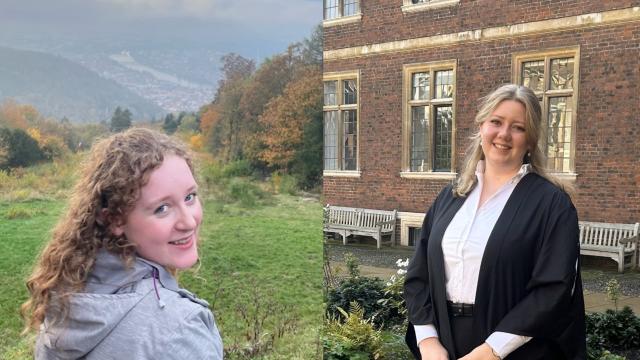
A Fellow of St Catharine’s is the senior author of a new study that sheds light on the complex dynamics between cancer and regulatory T (Treg) cells, powerfully immunosuppressive cells which limit a patient’s immune response to cancer. As cancer treatment continues to evolve, this research represents a significant step forward in understanding and potentially overcoming the limitations of current immunotherapies.
Professor Rahul Roychoudhuri (2020), Director of Studies in Pathology at St Catharine’s, and colleagues at the University of Cambridge’s Department of Pathology have revealed a previously unrecognised source of immune suppression which occurs following therapeutic depletion of Treg cells, limiting response efficacy. Their findings were published yesterday in the journal Science Immunology.
"Our findings unveil a compensatory mechanism where conventional T cells acquire suppressive functions, limiting the effectiveness of therapies targeting Treg cells. This insight is crucial for developing more effective cancer immunotherapies which work by depleting Treg cells.”
In recent years, cancer immunotherapy has emerged as a revolutionary approach for treating advanced cancers. Breakthrough therapies, particularly those targeting immune checkpoints like PD-1 and CTLA-4, have transformed the outlook for many cancer patients. However, not all patients respond to these treatments and targeting Treg cells has been a focus for researchers seeking to enhance immune responses against tumours. However, clinical trials targeting Treg cells have thus far been underwhelming, prompting a deeper investigation into their role by the team at Cambridge.
The research team used cutting-edge cellular and molecular immunology approaches and cancer models to demonstrate that upon therapeutic depletion of Treg cells, a subset of conventional T cells (Tconv), marked by expression of the chemokine receptor CCR8, adopt Treg cell-like behaviour and produce an immunosuppressive cytokine IL-10 which subsequently limits the efficacy of the immune response released upon Treg repletion. This unexpected finding challenges the previous understanding that focusing solely on Treg cells could yield substantial therapeutic benefits.
Dr Sarah Whiteside, the study's first author, emphasises the broader implications of their work:
"By recognising the compensatory immunoregulatory functions taken up by Tconv cells when Treg cells are depleted, we can explore new strategies that target these cells alongside Treg cells to enhance the efficacy of cancer treatments."
The study not only underscores the complexity of the immune system's response to cancer but also opens new avenues for cancer treatment. By identifying the role of IL-10-expressing CCR8+ Tconv cells in mediating immune suppression, the research provides a new targets for overcoming immunotherapy resistance to Treg depleting immunotherapies. The implications of this study are significant, offering hope for improved therapies for cancer patients who currently do not benefit from existing treatments.
The research was conducted at the University of Cambridge’s Department of Pathology and the CRUK Cambridge Cancer Centre in collaboration with the research group of Dr Enrico Lugli at Humanitas Milan in Italy. The research was conducted with support from the UK Medical Research Council and an ERC Consolidator Award to Prof Roychoudhuri.



